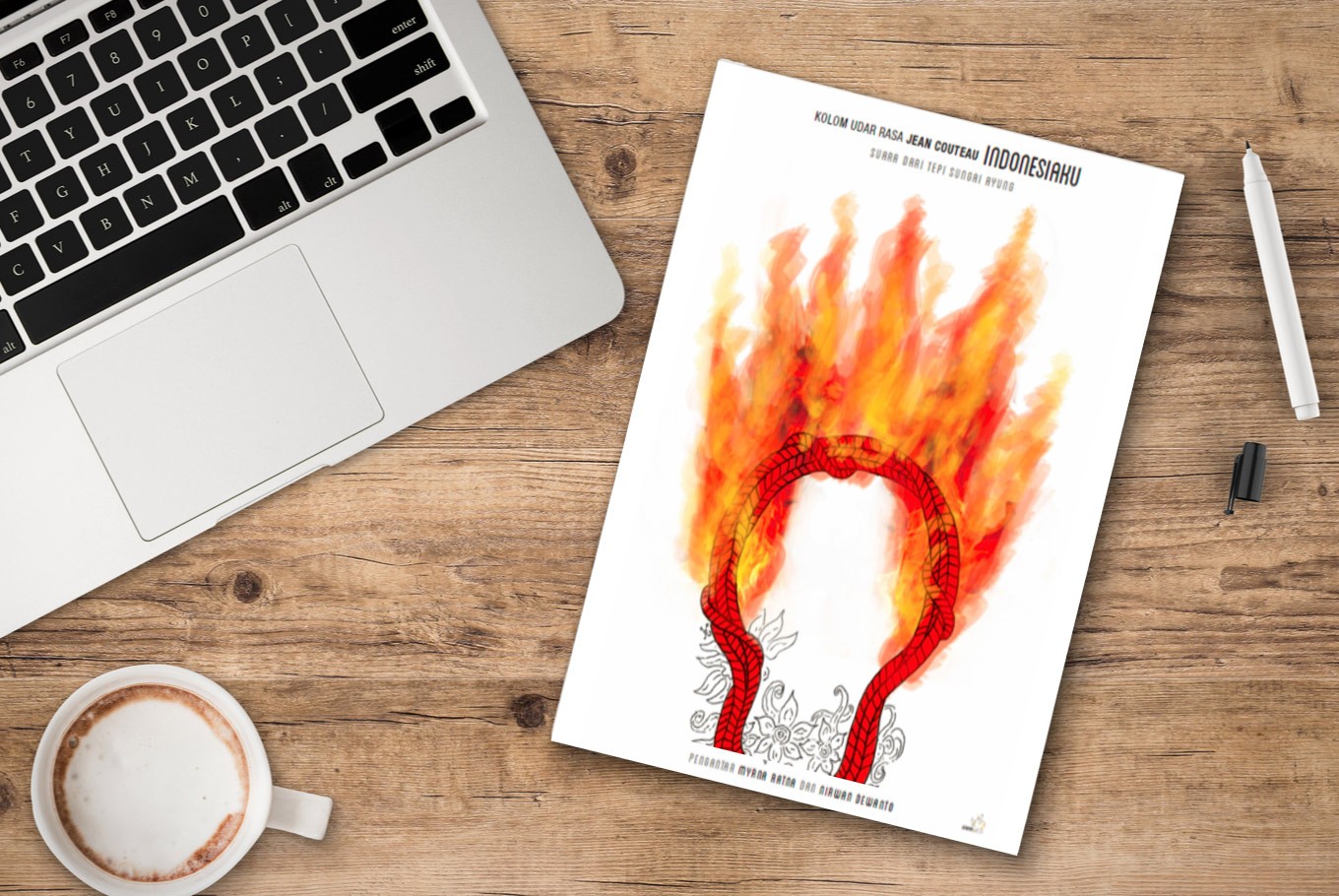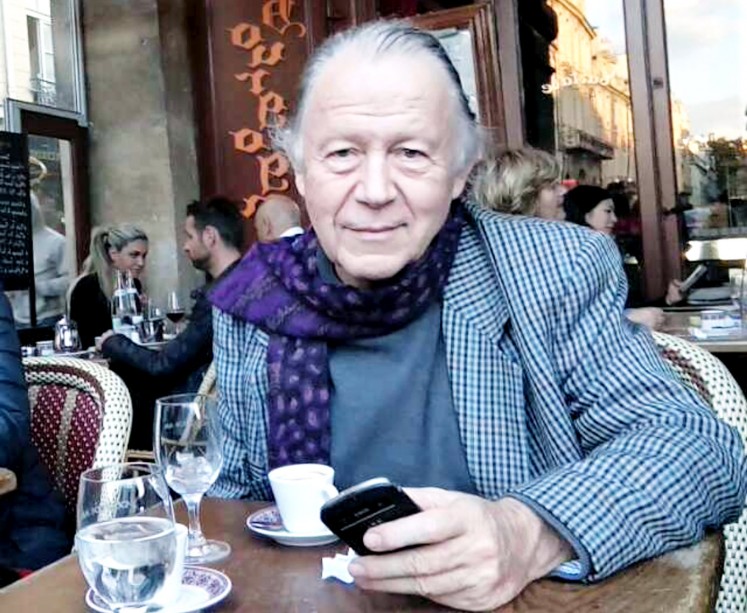Popular Reads
Top Results
Can't find what you're looking for?
View all search resultsPopular Reads
Top Results
Can't find what you're looking for?
View all search resultsJean Couteau: Self-critique as a way of criticizing
Renowned art critic, curator and author Jean Couteau is a master of mocking without evoking the wrath of those being mocked.
Change text size
Gift Premium Articles
to Anyone
A
very long time ago, when I first met Jean Couteau, I was kind of wondering what to think of him: was he some sort of Indian “guru”? His outfit of white pants and white long-sleeved shirt could make one think so, while his ponytail was something peculiar.
Then I was told he was a Frenchman who settled in Bali in 1975, an anthropologist and alumnus of the École des Hautes Études en Sciences Sociales (EHESS) in Paris, who had made insightful studies of Balinese culture and traditions. In 1986, he obtained a doctoral degree for his thesis of art history and iconographic art of Bali.
But apart from Bali on which his many books focus — like Time Rites and Festivals in Bali Today I, Bali Today II, Bali Inspires and Lempad ( 2014 ) — he has written numerous books on Indonesian artists, such as Affandi, Arifien Neif, Srihadi Sudarsono, Walter Spies, Made Wiante and many more.
He is indeed a learned man. But his demeanor displays a humility that can be too much, even for his close Indonesian friends. They say he is more Javanese than the Javanese. He would never stand up, for instance, to demand his due, leaving himself victim to people’s manipulative tendencies.
Yet he is held in high respect. So much so that he has been accorded titles he says he does not deserve. While he feels flattered, he admits to feeling uncomfortable.
At first, he was addressed as Pak Jean, but soon he became Pak Prof. “I am not a professor,” he laughs, “But well, what can one do.” They also describe him as tokoh (public figure) and budayawan (art observer).
But in self-critique he admits, “I am pleased anyway”, and wonders whether he’s becoming overbearing now.
Laughing at himself, he makes fun of the new title “professor”, but adds that unfortunately it pressured him into acts that his inner self would renounce. For instance, because a professor needed to live up to that title (in society), he changed his old car to a new one. “Though I had to pay in installments”.
In Indonesia, this is the way one is trapped into a system of kindness (and prestige), he sighed. He admits that at first, he thought this happened to him because he was a bule (westerner), but he says now he realizes it is exactly because he was becoming Indonesian.
The story Terjebak Sebagai Tokoh (Trapped as a Community Figure) appears in the recently launched compilation of his stories that appear in his Udar Rasa column in Kompas daily’s Sunday edition. Couteau translates udar rasa as “hodge podge”.
Through his 49 stories in the book, titled Indonesiaku: Suara Dari Tepi Sungai Ayung (My Indonesia: Voice from Ayung Riverbank), Couteau intellectually blends his wide knowledge of cultural and socio-political Europe and the West with his in-depth study of culture and traditions in Indonesia, particularly Bali.
Renowned art critic, curator and author Jean Couteau is a master of mocking without evoking the wrath of those being mocked. (Jean Couteau/File)His commentaries usually start with everyday issues, which are built up to reveal a critique underneath. He does so with a lot of humor in a would-be self-criticizing manner.
The casual tone and the almost colloquial nature of his language draws one into his storytelling, and one becomes lulled by his entertaining humor, in which he blames himself as a bule, so that one is often unaware of the inherent critique.
This is the case in his story about Siti, his servant, who died in an accident on her way to her hometown to celebrate Idul Fitri.
As one follows his account of remorse of never having taken any notice of her when alive, except for her serving him coffee and ironing his pants, and how he never asked for her forgiveness as is customarily done during the Idul Fitri celebration in Indonesia, his sting came almost unnoticed.
Siti died because the doctors in the hospital were so busy in the ceremony of forgiving each other during the festive moment that they had no time to attend to the patient. In Nantes, France, where he had been treated for months, he said the doctors were so busy helping the patients that they did not have time even to smile.
When it is about his experiences in relation to Indonesia, Couteau is soft and full of humor. But talking about hot international issues, he is surprisingly direct, what matters is the universal good.
In the case of Aung San Suu Kyi, for instance, his commentary follows the Western international outcry without any consideration of an alternative view.
In another story about racism, his comment is mild. Sinterklaas, the Dutch version of Santa Claus, and his assistant Zwarte Piet (Black Pete), are descending from the sky when Nelson Mandela, the antiapartheid revolutionary leader dies and rises to the heavens. Expected to meet on their way up and down, Couteau calls on Mandela to ask the white Sinterklaas to come down from his arrogance and learn to be an assistant, while urging Zwarte Piet to insist on equal rights.
The book of 49 short stories was published in 2017 by Kompas. A delightful read, an English version is to be desired.
_______________________________
Indonesiaku: Suara Dari Tepi Sungai Ayung
By Jean Couteau
Published: PT Kompas Media Nusantara, 2017
192 pages












